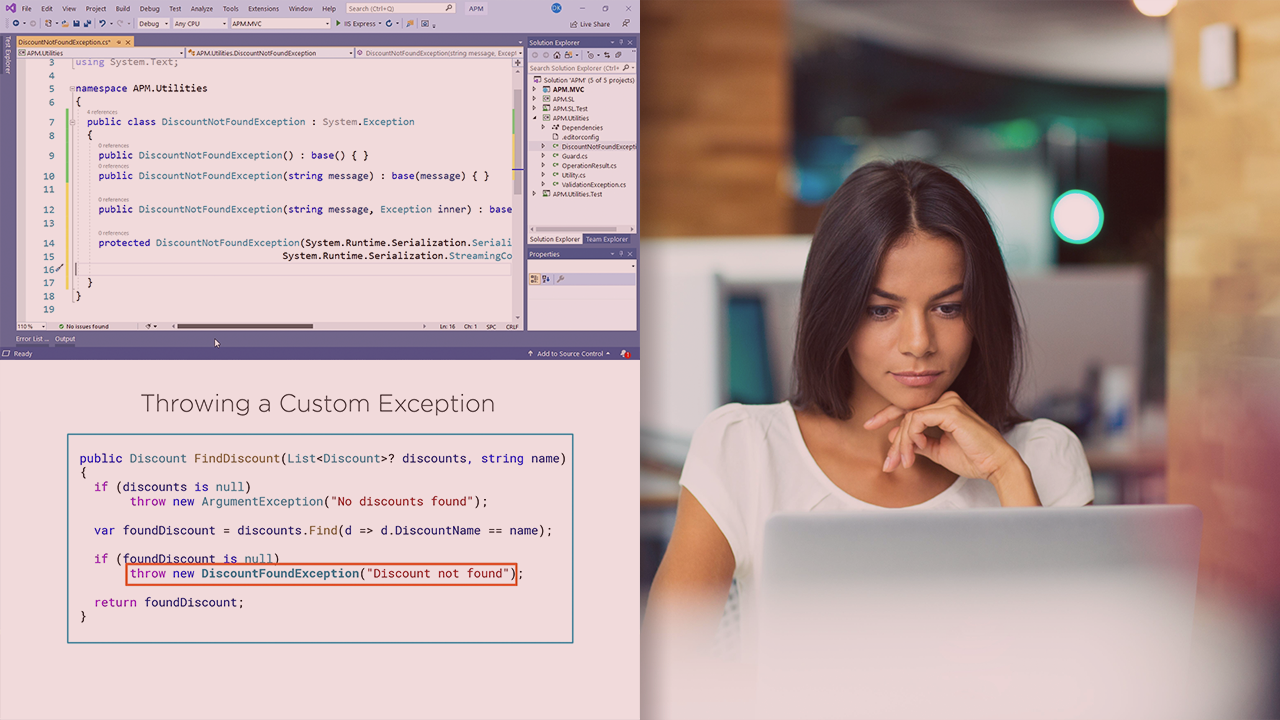- Course
Defensive Coding in C#
Learn techniques for strengthening your application’s defenses against the perils awaiting it in the real world. You will see how to write clean code, create unit tests, build clear methods, and prepare for the unexpected.

- Course
Defensive Coding in C#
Learn techniques for strengthening your application’s defenses against the perils awaiting it in the real world. You will see how to write clean code, create unit tests, build clear methods, and prepare for the unexpected.
Get started today
Access this course and other top-rated tech content with one of our business plans.
Try this course for free
Access this course and other top-rated tech content with one of our individual plans.
This course is included in the libraries shown below:
- Core Tech
What you'll learn
Great applications perform required operations as expected, help users enter correct data, handle system and application exceptions, and make it easy for future developers to modify and maintain the code. Defensive coding focuses on improving code comprehension through clean code, improving code quality with unit tests, and improving code predictability by building clear methods and preparing for the unexpected. In this course, Defensive Coding in C#, you will gain the ability to strengthen your application’s defenses against the perils awaiting it in the real world. First, you will learn how to improve your code comprehension by following techniques such as the Single Responsibility principle. Next, you will discover how to improve your code quality through unit tests. Finally, you will explore how to improve your code predictability by validating method arguments, handling nulls appropriately, returning predictable results, and managing exceptions. When you are finished with this course, you will have the skills and knowledge needed to strengthen your code’s defenses.

